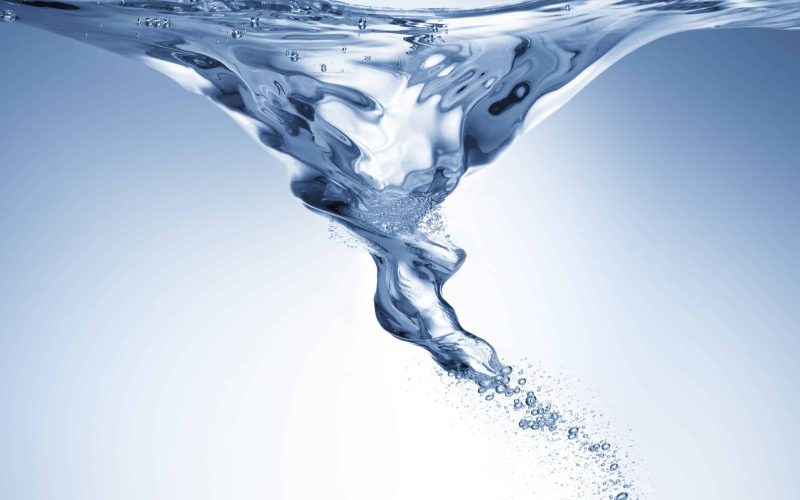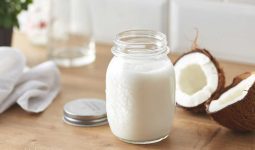Ordinary water is the most suitable means of keeping your body hydrated. Nevertheless, a few beverage companies assert that adding elements such as hydrogen to water can provide health benefits.
This article studies hydrogen water and its purported health impacts to help you determine whether it’s a wise choice.
What Is Hydrogen Water?
Hydrogen water is merely pure water that contains hydrogen molecules. Hydrogen is a colourless, odourless, non-toxic gas that attaches to other elements that include nitrogen, oxygen, and carbon to form different compounds like table sugar and water.
Water molecules include two hydrogen atoms and one oxygen atom. Some sources claim that instilling water with extra hydrogen provides benefits that plain water cannot offer. It is also believed that the body can’t properly consume the hydrogen in plain water because it’s bound to oxygen.
Certain companies assert that when more hydrogen is included, these hydrogen molecules become “free” and more available to the body. Hydrogen water is manufactured by infusing hydrogen gas into pure water before storing it in cans or pouches.
Hydrogen water can be costly, having companies sell a 30-pack of 8-ounce (240-ml) cans for $90 and recommending buyers consume at least three cans a day. Also, hydrogen pills that are meant to be added to plain or carbonated water are sold online and in health food shops.
Hydrogen water devices can also be acquired by those who wish to prepare it at home. Hydrogen water is used to reduce inflammation, increase athletic performance, and even slow down the ageing process in humans.
Nonetheless, studies in this area are insufficient, which is the reason several health experts are sceptical of its supposed benefits.
Does hydrogen water have any health benefits?
Although human researches on the health benefits of hydrogen water are insufficient, several small trials have had profitable results. These results include:
Hydrogen water may have antioxidants benefits
Free radicals are unstable molecules that are involved in oxidative stress, a primary factor of disease and inflammation. Hydrogen molecules help combats these free radicals in your body and protect your cells from the impacts of oxidative stress.
Following an eight-week examination in 49 people making use of radiation therapy for liver cancer, half the participants were advised to consume 51–68 ounces (1,500–2,000 ml) of hydrogen-enriched water every day.
After the trial, those who drank hydrogen water during their treatment experienced decreased levels of hydroperoxide (a marker of oxidative stress) and maintained more significant antioxidant activity after the radiation procedure.
Nevertheless, a recent four-week review in 26 healthy people revealed that drinking 20 ounces (600 ml) of hydrogen-rich a water a day did not reduce markers of oxidative stress like hydroperoxide, compared to the placebo group. Further researches are required to verify if drinking hydrogen lessens the effects of oxidative stress in both healthy people and those with severe conditions.
May help those with metabolic syndrome
Metabolic syndrome is a condition defined by elevated blood sugar, high cholesterol, heightened triglyceride levels, and excess belly fat. Chronic inflammation is also believed to be a contributing factor.
Few studies indicate that hydrogen water may be useful in decreasing markers of oxidative stress and improve risk factors associated with metabolic syndrome.
A 10-week review required 20 people with indications of metabolic syndrome to drink 30–34 ounces (0.9–1 litre) of hydrogen-enriched water each day. After the trial, participants experienced considerable reductions in “bad” LDL as well as total cholesterol, an improvement in “good” HDL cholesterol.
They also experienced a more significant antioxidant activity and lesser levels of inflammatory markers like TNF-α.
May be beneficial to athletes
Several companies encourage the consumption of hydrogen water as a natural means of enhancing athletic performance. The product may be beneficial to athletes by lessening inflammation and slowing down the accumulation of lactate in the blood, which is an indication of muscle fatigue.
A review in ten male soccer players revealed that athletes who consumed 51 ounces (1,500 ml) of hydrogen-enriched water experienced lesser levels of blood lactate and reduced muscle fatigue after a workout compared to a placebo group.
Another two-week survey in eight male cyclists confirmed that the men who drank 68 ounces (2 litres) of hydrogen-enriched water every day had tremendous power output during sprinting practices than those who consumed regular water.
Nevertheless, this is a new area of study, and additional researches are needed to understand how consuming hydrogen-enriched water may help athletes ultimately.
Should you consume hydrogen water?
Several reviews on the health effects of hydrogen water revealed positive results, but additional researches are required before any conclusions can be drawn.
Hydrogen water is naturally recognized to be safe (GRAS ) by the FDA, meaning that it’s accepted for human consumption, and it isn’t known to cause any harm.
Notwithstanding, you should be informed that there is presently no industry-wide standard on the quantity of hydrogen that can be added to water.
Because of this, concentrations can differ widely. Besides, it remains unknown how much hydrogen water must be consumed to get its potential benefits.
If you wish to try hydrogen water, experts recommend that you acquire products in non-permeable bottles and gulp the water down to obtain the full benefits. Many rumours are surrounding this beverage, but until more studies are completed, you should take the purported health advantages with a grain of salt.
Little researches reveal that hydrogen water may lessen oxidative stress in people going through radiation, promote performance in athletes, and improve specific blood markers in people with metabolic syndrome.
However, a comprehensive study verifying its health effects is lacking and making it unclear whether it is worth the hype.







